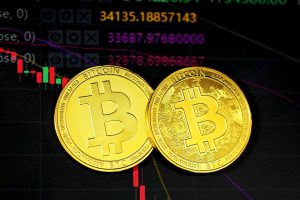The foreign exchange or forex market is the largest financial market in the world, with daily trading volumes averaging around $5.3 trillion. This market is where currencies are traded, and it is essential for global trade and investment. However, the forex market has experienced significant changes, particularly in the last few years. This article will examine what happened to the forex market and the factors that influenced these changes.
The forex market has been around for centuries, but it has undergone significant transformations in recent years. The advent of electronic trading platforms and advancements in technology have revolutionized the way currency trading is done. These technological advancements have made the market more accessible to retail traders, leading to an increase in trading volumes.
One of the notable changes in the forex market is the rise of algorithmic trading or automated trading systems. These systems use complex algorithms to analyze market data and execute trades automatically, eliminating the need for human input. Algorithmic trading has become popular among institutional traders and hedge funds, who use it to execute large trades at high speeds.
Another significant trend in the forex market is the growing influence of central banks. Central banks play a crucial role in the forex market as they control interest rates and monetary policy. Their decisions can significantly impact currency values, making them an essential factor for forex traders to consider. Central bank policies have become increasingly important in recent years, particularly since the global financial crisis of 2008.
Furthermore, political events have had a significant impact on the forex market. The Brexit referendum in 2016, for instance, caused significant volatility in currency markets. The uncertainty surrounding the outcome of the vote led to sharp movements in currency values, with the pound sterling plummeting to its lowest level in over three decades. Similarly, the 2020 US presidential election also caused significant volatility in the forex market, with traders closely monitoring the election results and the potential impact on the US dollar.
The rise of cryptocurrencies has also brought significant changes to the forex market. Cryptocurrencies are digital currencies that use blockchain technology to facilitate secure transactions. While cryptocurrencies are not yet widely accepted as a means of payment, they have become a popular asset class for traders. Some forex brokers now offer cryptocurrency trading pairs, allowing traders to speculate on the value of cryptocurrencies against traditional currencies.
The COVID-19 pandemic has also had a significant impact on the forex market. The pandemic led to a global economic downturn, which caused a decline in trading volumes. However, the uncertainty surrounding the pandemic has also led to increased market volatility, particularly in the early stages of the outbreak. Central banks around the world have implemented policies to support their economies, such as cutting interest rates and providing stimulus packages, which have also impacted currency values.
In conclusion, the forex market has undergone significant changes in recent years, driven by technological advancements, central bank policies, political events, the rise of cryptocurrencies, and the COVID-19 pandemic. These changes have made the market more accessible to retail traders, but they have also increased volatility and complexity. As such, traders must stay informed and adapt to these changes to succeed in the forex market.





